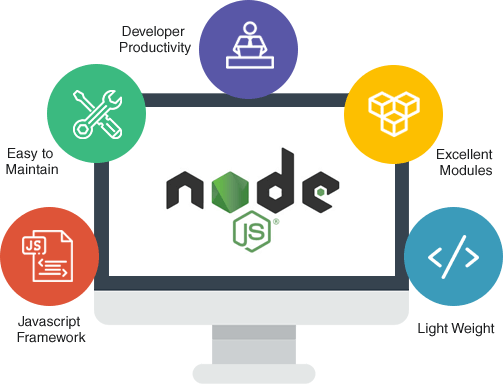Blitz News Digest
Stay updated with the latest trends and insights.
Node.js: Where JavaScript Goes to Party
Discover how Node.js transforms JavaScript into a powerhouse! Unleash the fun and power of coding in this ultimate guide.
Understanding Node.js: The JavaScript Runtime That Powers the Web
Node.js is an open-source, cross-platform runtime environment that allows developers to execute JavaScript code outside of a web browser. It was built on Chrome's V8 JavaScript engine, which compiles JavaScript directly into native machine code. This capability makes Node.js an excellent choice for building scalable network applications, particularly server-side applications. With its non-blocking, event-driven architecture, it is designed for real-time applications and can handle multiple connections simultaneously without the overhead of traditional thread-based networking.
One of the defining features of Node.js is its package ecosystem, NPM (Node Package Manager), which offers a vast library of reusable code modules. This encourages code sharing and accelerates the development process, as programmers can quickly find and integrate existing solutions for common tasks. By utilizing Node.js, developers can create efficient APIs, web servers, and even IoT applications, showcasing its versatility and adaptability in a variety of environments. As the demand for faster and more efficient web solutions continues to grow, understanding Node.js will become increasingly essential for modern developers.

10 Reasons Why Node.js is the Life of the JavaScript Party
Node.js has emerged as a powerhouse in the JavaScript ecosystem, and for good reason. First and foremost, its non-blocking I/O model allows for efficient handling of multiple connections simultaneously, making it ideal for building scalable network applications. Additionally, the use of JavaScript on both the server and client side streamlines development processes, as developers no longer have to switch contexts between different programming languages. This uniformity contributes to a quicker development cycle, ultimately enhancing productivity.
Moreover, the vibrant Node.js community is another factor that cements its status as the life of the JavaScript party. With a wealth of libraries available through npm, developers have access to a plethora of resources at their fingertips, facilitating rapid application development. This extensive ecosystem helps in solving common problems without reinventing the wheel, allowing developers to focus on delivering unique features. In summary, the combination of performance, ease of use, and community support makes Node.js an indispensable tool for modern web development.
How to Throw a Successful Coding 'Party' with Node.js: Tips and Tricks
Throwing a successful coding 'party' with Node.js can be a rewarding experience for developers looking to collaborate and share knowledge. To start, set a clear objective for your event. Whether it's building a specific project or learning new frameworks, having a focused theme helps participants stay engaged. Next, consider the venue; hosting your session at a co-working space or a tech hub with reliable internet can make all the difference. Remember to set up some basic coding tools beforehand, such as version control and collaborative platforms like GitHub, to facilitate teamwork.
During your coding party, encourage participation by fostering a welcoming atmosphere. You can achieve this by establishing ground rules for collaboration and reminding everyone that mistakes are part of the learning process. To keep energy high, incorporate breaks and refreshment stations, whether that's coffee, snacks, or even a pizza order for longer sessions. Additionally, don't forget to celebrate small victories and share progress through interactive presentations at the end of the event. Finally, remind attendees to follow up with each other post-event, as maintaining connections can enhance their learning journey with Node.js.